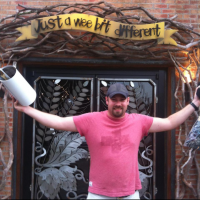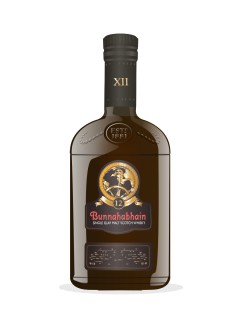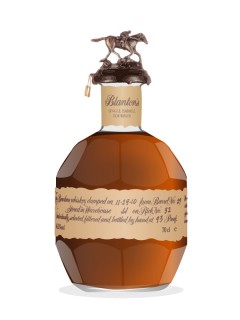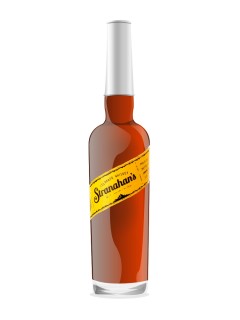@Mandalf's profile
About five years ago, I developed a serious interest in the craft beer industry beyond the consumer level. I began visiting breweries taking the tours, making it a point to talk with the head brewers or brewery owner(s) about what influenced them, their inspiration, etc. This began to evolve into invitations to visit the breweries during the non-touring hours to see the operations, talk “shop” with others, etc.
Also during this time, I kept finding myself enjoying craft spirits more than the great beers I was experiencing. The downside for me was that there are, obviously, not nearly as many craft distilleries around as there are breweries. So, I decided to plan my monthly backpacking trips near areas or along routes where craft distilleries were located. I sought to learn at the various distilleries just as I had during my visits with head brewers or brewery owners . The passion that I found master distillers have for their craft and product was not to be outmatched and was hugely contagious to me. One major thing stood out to me as a difference between the brewers and distillers -- brewers almost exclusively differentiated their product from others by ingredients, while I observed that with distillers, every detail matters. I began to pour over their methods, ingredients, equipment, operations, traditions, philosophies, etc. I began to intently research what went on behind the scenes. I wanted to know more about everything that made this industry so unique from anything else I’d ever experienced.
As I began to understand more about the water sources, grain bills, yeast strands, malting subtleties, and various equipment solely used in the distilling industry, I began to recognize the differences the minute details made in the finished products. I shared what I was learning and the subtleties of the different distilleries at tasting events I organized for my friends. I started studying the physics behind the different components which orchestrate together in a still. I started talking with still manufacturers about why they chose different shapes, metals/alloys, heating methods, sizes, angles, and so on. The more I learned, the more I wanted to learn! Now, as I visited distilleries, I began to identify equipment, ask questions regarding choices made during the designing phases of the distillery such as, “Why did you choose a still with a lyne arm which angles upward and also run a dephlegmator atop your column?” or “Why did you choose one particular type of yeast over another?” Some answers sufficed, while others drove me back into research to continue learning more about the fascinating art and sciences behind the spirits themselves, and the equipment upon which they are so carefully created.
I began to ask questions about starting a distillery, such as what it takes for permitting, what questions I should ask regarding legislation, among others. I am very intentional about trying to ask questions to the individual best equipped to answer. During several visits to various distilleries, I’ve been given the chance to operate equipment and offer advice from other distillers. My background in operations (7 years in operations management from UPS) has led me to help some distilleries increase efficiency many times over. Between trips, I would fill nearly every free moment with studying books, articles, e-lectures, and anything else I could get my hands on. I joined American Distilling Institute’s (ADI) forum, and began listening and conversing with distillers from around the country and the world. After reading what seemed to be shelves upon shelves of books, flyers, and anything else I could find, my father recommended Lallemand’s Distilling Textbook. I quickly ordered a copy for myself and have been reading through it since.
As I began to talk with more distillers I began to sympathize with the obstacles they constantly run up against. Through reading legislation regarding the distilling industry, I’ve come to realize that there must be a major legal reformation similar to the one that took place to allow for the craft beer boom. I have also begun the process of establishing relationships at the local, state and (eventually) federal level where major impact can be made to reduce or remove the obstacles to growth in the industry.
I am currently in the process of becoming the first and only member of Georgia Distillers Association who is not a distillery owner or partner. I am also already a member or joining various other political organizations who’s primary goal is to influence the legislation at the state and local level to make the environment more suitable for the distilling businesses. We are making progress also; over the past few years the Georgia Code has allowed more opportunity and flexibility among brewers and distillers, but there is still such a long way to go.
My dream is threefold. First, I am eager to start my own distillery in which we only produce some of the finest products in the world. Second, the distillery will house a facility in which distillers from around the world can come research and experiment. I dream of the day when I can be involved in resurrecting old world methods along side of state of the art equipment which will continue to revolutionize the distilling industry. Thirdly, I wish to educate and influence politicians and the general public on the arts and sciences involved in the processes needed in distilled spirits.
This is only the start of the journey for me. I am excited to see where this will take me, the people I will have the honor to meet along the way and the impact I hope to have on the next generation on producers and consumers.





